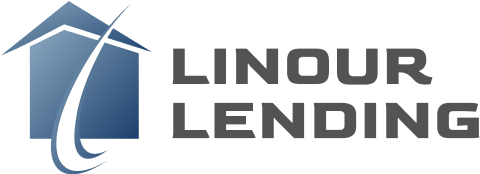Understanding FHA Loans
Explore the essentials of FHA loans, from eligibility to benefits, and understand how they can help you achieve your dream of homeownership.
Introduction to FHA Loans
FHA loans, guaranteed by the Federal Housing Administration, offer a path to homeownership for many who might not qualify for traditional mortgages. Originating in the Great Depression, their purpose is to make home buying more accessible.
Real-world examples illustrate how FHA loans have helped numerous individuals and families achieve their homeownership dreams.
The loan program continues to evolve, responding to economic changes and housing market trends. Their accessibility and unique benefits make them a valuable option in the diverse world of home financing. Its future will likely see further adjustments to better serve borrowers.
Eligibility Criteria
Qualifying for an FHA loan requires meeting specific credit and income criteria. While more lenient than conventional loans, applicants must still demonstrate creditworthiness and stable income.
Benefits of FHA Loans
One of the biggest attractions is the low down payment requirement, often as little as 3.5% of the home's purchase price. This opens doors for many first-time buyers and those with limited savings.
Types of FHA Loans
Comes in two main types: fixed-rate, where the interest rate remains constant throughout the loan term, and adjustable-rate, which can change over time based on market conditions.
Limits and Terms
FHA loans have maximum limits, which vary by region and property type. These limits ensure the program serves its target market of moderate-income borrowers.
The FHA Loan Application Process
Applying involves several steps, from pre-qualification to gathering necessary documents. It's a process that demands attention to detail and thorough preparation.



Frequently Asked Questions
Buying a foreclosure is a path that can lead to significant savings, but it comes with specific eligibility criteria and requirements. The property must meet certain standards and pass an FHA appraisal. Understanding these prerequisites is crucial for a successful purchase.
Process and Considerations
The process of buying a foreclosure involves several steps, including finding eligible properties, securing pre-approval, and navigating the complexities of foreclosure purchases. It’s essential to be aware of the potential risks and rewards involved in buying foreclosed properties.
Advantages of Buying a Duplex with an FHA Loan
Investing in a duplex offers unique advantages, such as the opportunity to live in one unit while renting out the other. This can be an excellent way to offset mortgage payments and gain investment experience.
Impact of Eviction on Loan Eligibility
Having an eviction in your history can be a hurdle when applying for a loan. However, it’s not necessarily a deal-breaker. Understanding how an eviction affects your eligibility and what steps you can take to mitigate its impact is crucial.
Overcoming Eviction History for Loan Approval
Strategies for overcoming a past eviction include improving your credit score, demonstrating financial stability, and providing a reasonable explanation for the eviction. These measures can enhance your chances of loan approval.
Criteria for Holding Multiple FHA Loans
While generally, FHA loans are limited to one per borrower at a time, there are exceptions. Understanding the specific criteria that allow for holding multiple FHA loans simultaneously is essential for those considering this option.
Legal and Financial Implications
Navigating the legal and financial implications of having more than one requires careful planning and consideration.
Comparing FHA and Conventional Loans
While both loan types help achieve homeownership, they differ in eligibility criteria, costs, and benefits. Understanding these differences is crucial in choosing the right mortgage.
FHA Loans and First-Time Home Buyers
First-time home buyers often find FHA loans attractive due to lower credit and down payment requirements. These loans can be a gateway to homeownership for many who thought it out of reach.
FHA Loan Rates and Costs
Interest rates are competitive, but borrowers should also be aware of additional costs, such as closing fees and mortgage insurance premiums.
Refinancing with FHA Loans
For existing homeowners, FHA offers refinancing options, including the streamline refinance program for those who already have an FHA loan.
FHA 203(k) Rehabilitation Loans
Provides funds for both purchasing and renovating a home, making it ideal for buying fixer-uppers or updating an existing home.
FHA Loans for Multi-Family Properties
These loans aren't just for single-family homes; they can also be used for purchasing multi-family properties, offering a way into real estate investment.
Challenges and Drawbacks
Despite their benefits, come with certain limitations and requirements that might not be suitable for all borrowers, such as mandatory mortgage insurance.
Client Testimonials



Get an FHA Loan Today!
Explore your mortgage options to maximize savings.
By submitting this form, you agree to Linour Lending’s Terms of Use and Privacy Policy. You consent to receive phone calls and SMS messages from Linour Lending to provide updates on your inquiry and/or for marketing purposes. Message frequency depends on your activity. You may opt-out by texting “STOP.” Message and data rates may apply. Reply “HELP” to receive help.




